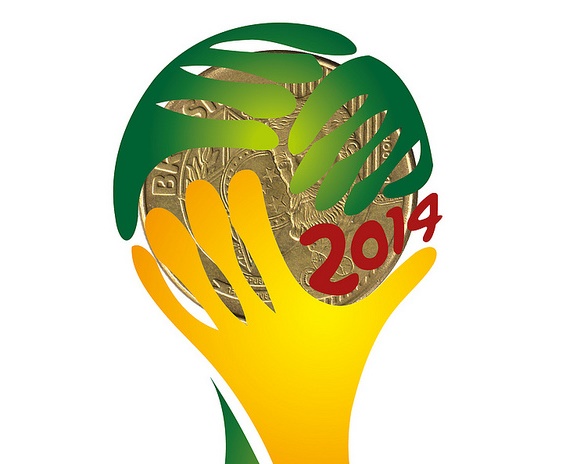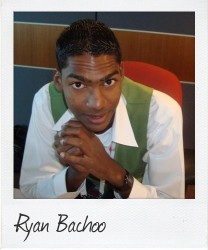"The tournament belonged to the world"
July 16World Cup 2014 brought fans all the expected thrills of the beautiful game, but for Ryan Bachoo, 25, a Commonwealth Correspondent from Trinidad and Tobago, one thrill was the scope of online coverage of the event.
Now that the World Cup is over, it’s back to life as usual for football fans. It’s been a quite remarkable tournament with more than a few surprises to keep things interesting. Some teams surprised – that led to others’ demise. On the field, the football was quite entertaining and really seemed to be a beautiful game many times throughout the tournament. Late winners, early goals, last minute equalisers, controversial decisions, you name and this World Cup has had it.
Forgetting the problems that Brazil had both in the build up to and during the World Cup, and there were many, I was impressed with one aspect of the 2014 tournament – the online coverage. Forgive me for being 25 years old and sounding like an 80 year old who just discovered that I can send a letter to someone on the other side of the planet via e-mail instead of waiting 60 days for it to arrive via postal.
But if I must be honest, I have taken longer than the usual young adult to fall head over heels for social media. Nevermind I’m the Internet and Social Media Officer of the West Indies Cricket Board. I protect an image there. However, this World Cup presented such a coverage for an online audience that it’s hard to think where we will be in four years’ time when Moscow hosts the 2018 tournament.
The best coverage of the World Cup, especially during matches, happened to be not only on Sky or the BBC or ITV, but online. I’ll start with Twitter’s initiative that I can’t help but applaud. If there was a competition, then Twitter would have beaten other social media sites like Facebook by some distance.
Twitter’s initiative to create a block on their homepage specifically with the day’s World Cup matches was a huge success. Using the hashtag of the matches, all Tweets geared towards that page looked like a virtual micro-site for the game. What that did, in effect, was create an online stadium of its own, with millions of viewers around the world filling up the stadium, all watching the same game, Tweeting about it, and every view could be seen and every opinion mattered. People felt like they were a part of the World Cup, even if they were in their living rooms.
It got so bad at one point while I was watching France play Ecuador that I just dropped my laptop aside. I spent more time looking through Tweets on the #FRAvsECU hashtag than I did actually watching the game. Needless to say I was looking forward to watching the game days in advance. But it was such a thrill to read through the Tweets and see pictures. Some people had pretty funny things to say.
Another favourite part of the online coverage was Vine videos. Now, I must admit that I didn’t know too much about Vine before the World Cup, and yes I did do some research, but it added so much to the coverage. Seconds (and I am not even exaggerating) after a goal was scored in any World Cup match, the short video would be all over the internet for the world to see. If you missed a goal or a great save from a goalkeeper, or even something strange or funny during the game, you would be sure to catch it somewhere online.
I was truly quite amazed with the online coverage. Even newspapers and television stations like Sky and the BBC were quite good in their live online text commentary. Easy to follow. I couldn’t help but be intrigued by what I was seeing around me online. Coca Cola had a quite nice advertisement during the World Cup that said “Welcome to the World’s Cup” and online, it really did feel like the tournament belonged to the world.
photo credit: the_digitalmonkey via photopin cc
………………………………………………………………………………………………………………
About me:
“Hi, my name is Ryan Bachoo. I’m a Journalist and Public Relations Practitioner from Princes Town in the twin island of Trinidad and Tobago. I’ve moved into the field of Mass Communication now. I currently work for the West Indies Cricket Board, protecting the online image of West Indies Cricket.
I’ve been a Broadcast Journalist at Cable News Channel 3 for three years. For the Commonwealth Youth Secretariat, I write on topics of politics, war and economics.”
Ryan Bachoo
Journalist & Public Relations Practitioner
The People’s Writer
I speak for those who have no voice!
…………………………………………………………………………………………………………………
Opinions expressed in this article are those of the author and do not necessarily represent the views of the Commonwealth Youth Programme. Articles are published in a spirit of dialogue, respect and understanding. If you disagree, why not submit a response?
To learn more about becoming a Commonwealth Correspondent please visit: http://www.yourcommonwealth.org/submit-articles/commonwealthcorrespondents/
…………………………………………………………………………………………………………………





